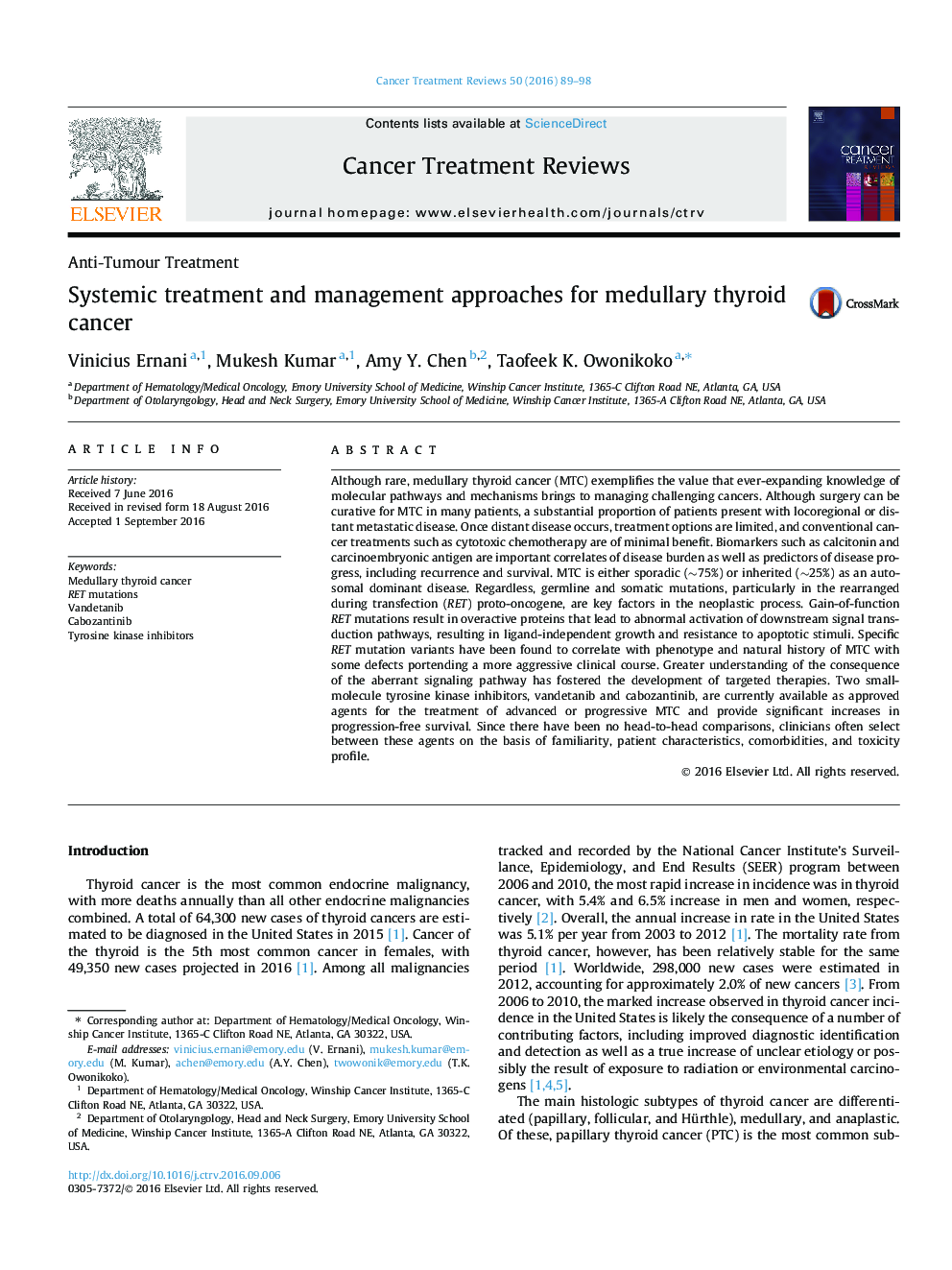| کد مقاله | کد نشریه | سال انتشار | مقاله انگلیسی | نسخه تمام متن |
|---|---|---|---|---|
| 3979714 | 1601108 | 2016 | 10 صفحه PDF | دانلود رایگان |
• Medullary thyroid cancer (MTC) presents in both hereditary and sporadic forms.
• Genotype and phenotype are highly correlated.
• Targeted therapies have derived from understanding of aberrant signaling pathways.
• Vandetanib and cabozantinib are FDA-approved targeted therapies for progressive MTC.
• Familiarity and unique toxicity profiles are important in treatment selection.
Although rare, medullary thyroid cancer (MTC) exemplifies the value that ever-expanding knowledge of molecular pathways and mechanisms brings to managing challenging cancers. Although surgery can be curative for MTC in many patients, a substantial proportion of patients present with locoregional or distant metastatic disease. Once distant disease occurs, treatment options are limited, and conventional cancer treatments such as cytotoxic chemotherapy are of minimal benefit. Biomarkers such as calcitonin and carcinoembryonic antigen are important correlates of disease burden as well as predictors of disease progress, including recurrence and survival. MTC is either sporadic (∼75%) or inherited (∼25%) as an autosomal dominant disease. Regardless, germline and somatic mutations, particularly in the rearranged during transfection (RET) proto-oncogene, are key factors in the neoplastic process. Gain-of-function RET mutations result in overactive proteins that lead to abnormal activation of downstream signal transduction pathways, resulting in ligand-independent growth and resistance to apoptotic stimuli. Specific RET mutation variants have been found to correlate with phenotype and natural history of MTC with some defects portending a more aggressive clinical course. Greater understanding of the consequence of the aberrant signaling pathway has fostered the development of targeted therapies. Two small-molecule tyrosine kinase inhibitors, vandetanib and cabozantinib, are currently available as approved agents for the treatment of advanced or progressive MTC and provide significant increases in progression-free survival. Since there have been no head-to-head comparisons, clinicians often select between these agents on the basis of familiarity, patient characteristics, comorbidities, and toxicity profile.
Journal: Cancer Treatment Reviews - Volume 50, November 2016, Pages 89–98
